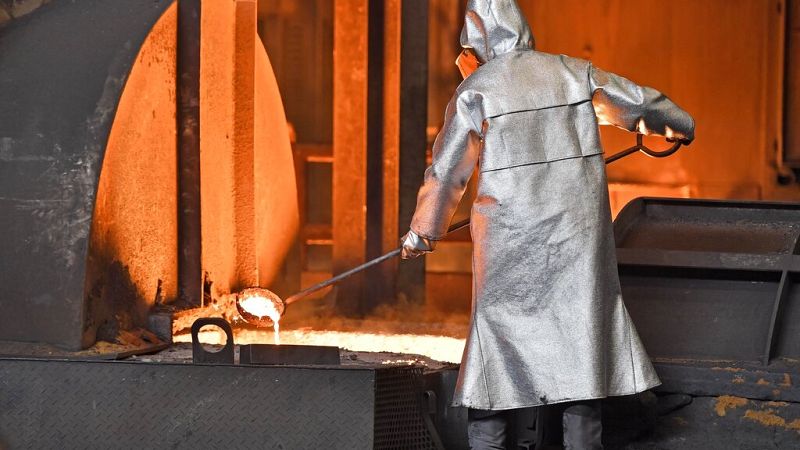
As the industry grapples with 25% US tariffs and faces competitive pressures from Asian producers, the Commission declared on Wednesday that it will impose a 15% cap on steel imports starting from April 1st.
In just a few years, global excess capacities—especially in Asia—have severely affected the order volumes at our facilities," stated Commission Vice-President Stéphane Séjourné when presenting an action plan for the steel and metal sectors. He continued, "Priority number one is clear: We must shield our steel mills from unjust foreign competition—no matter where it originates.
Following the imposition of a 25% tariff on steel and aluminum imports by the United States, the European Union has expressed concern about an influx of excess global steel capacities entering its markets. In response to a trade disagreement with President Donald Trump’s initial administration in 2018, the EU implemented a safeguard mechanism aimed at restricting steel imports. The extension of this measure has subsequently been repeated multiple times.
Starting from April, the Commission plans to increase these quotas with the aim of achieving an additional 15% decrease in imports. Additionally, they have stated that they will introduce a substitute for the safeguard clause, set to expire in 2026, during the third quarter of 2025.
As Euronews already reported The EU action plan on steel and aluminum also encompasses an inquiry into the aluminum sector within the European market to potentially implement safeguard measures.
"Europe should be a major stakeholder in the global steel industry, not just a testing ground," Stéphane Séjourné cautioned.
In order to safeguard its market against unfair competition from international entities, the European Union intends to implement a “melting and pouring” regulation for metal imports. This measure aims to stop foreign suppliers from evading established trade defense mechanisms—like those aimed at countering dumping practices or subsidies—by completing the final phase of manufacturing in a different nation exempt from these regulations prior to shipping goods into the EU.
As per the updated regulation, the Commission now has the authority to take action against the original melting location of the metal. This prevents the alteration of the material’s origin through minor modifications.


Post a Comment